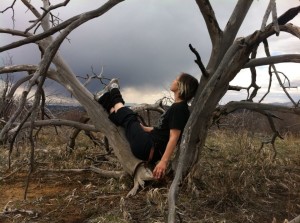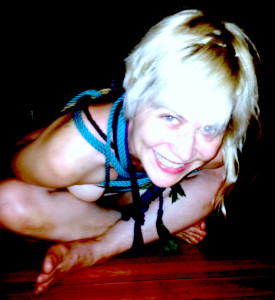I wasn’t intending on writing a blog today, but I found myself multitasking in a way that makes me happy, so perhaps I’m here to gush a little bit as I illustrate… something?… (I’ll have it figured out by the end, I swear!)
This morning I awoke to a plethora of emails that needed to be answered, lovely texts from people I love and enjoy in sexy ways, and debit card issues I needed to call about getting fixed. As I logged into my email account and started reading the FB messages I’ve been ignoring due to busyness, I found that a reader was interested in sharing their writing on the subject of chastity on this here blog! “How lovely”, I thought to myself and considered how to address her message as I answered an email about a vaudeville show I’ll be performing in in a couple of weeks. I let the reader know that I should have my own experience with the subject before I publish an article on it, but when I do I’d love to add her writing into the article as another point of reference. Then I called my bank and while on hold for waaaay too long responded to some beautiful good morning texts from partners I thoroughly enjoy text-loving on. I also asked a couple of them about whether or not they’d be interested in helping me with some ABC’s research homework and explained the chastity theme while intermittently giving my address/driver’s license number/DOB/account information to a combination of computer voices and human people, and then describing the issue’s I’m having with my debit card over and over again as I get transferred time and again to every various office in the banking realm’s Fortress of Frustration…
I hear back from one of my partners — the one who’s a longer distance lover — affirmative interest and excited about the chastity play prospect! Yay! Then I’m thinking, “Well, I want to make sure that my partner who’s away and really into this idea and I are not stepping on the toes of my partner who’s here in town with me who I think I’d also enjoy some interaction with on the chastity front… and with whom I am currently not that chaste”
‘Cause, yeah… submitting to chastity is one of those games that will interfere with all the people you’re having orgasms/paingasms/sexual or other certain types of play with, not just your chastity-Dominating buddy and you…
…So I text back that we should consider my close-by partner and ask my out-of-towner if they’d be interested in conjointly playing this game somehow. An affirmative answer again is returned as well as an agreed upon desire not to step on toes ’round these parts… So I post a great article I’ve been reading about the clitoris on my FB wall, and I text again my Local Love, asking how they feel about how chastity play with someone out of town might effect our play and what boundaries or rules they’d like to have surrounding this chastity research, and also whether they’re interested in some sort of tandem chastity play conjointly authored by themselves and the out-of-towner (whom they’re completely aware of and have met)… my local lovely is probably still sleeping anyhow, so I wait…
But then I see I should schedule some time to meet with a person who organizes an erotica reading series, oh and the bank can’t help me with my card ”cause everything looks fine from our end” grrr… but I’ll get a new card in the mail and until then I should make time for a trip to the bank to get a temporary one. Hang up the phone, schedule coffee date to discuss erotica reading, text Out of Town Lover to find out what they’d like to get out of the chastity play themselves, and receive a delicious answer that I’m not allowed to masturbate to thinking about…
You see, in just a short time a morning can be a wonderful place to be alive. Maybe that’s my point in all of this: thank you Universe for the communities who help me experience life in new ways, the friends who gather to lend a hand, and the strength in my body and mind to schedule for fun, follow through on the things, and still function highly enough to pay rent on time! …And while I’m handing out thanks, thank goodness for non-monogamous partners who are as into transparency, GGGness, and whose enjoyment of my enjoyments are as full as my appreciation and enjoyment of theirs… Also happy Bisexuality Visibility Week!!!
Yes Walt, alongside your beautiful queer ass, I sound my barbaric yawp over the roofs of the world!
To Breath and Being,
~ Karin
If you like my blog, please check out my Patreon Page and consider supporting me, or just click here: Support the Artist
~Thank you.


